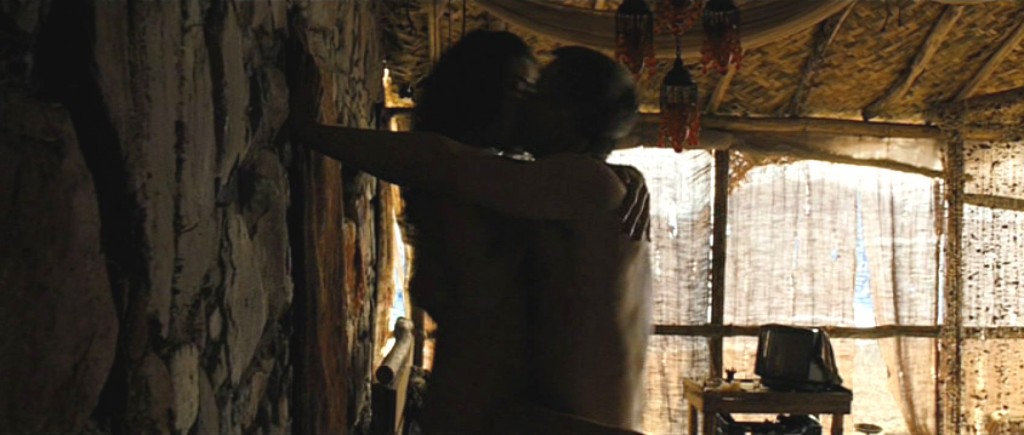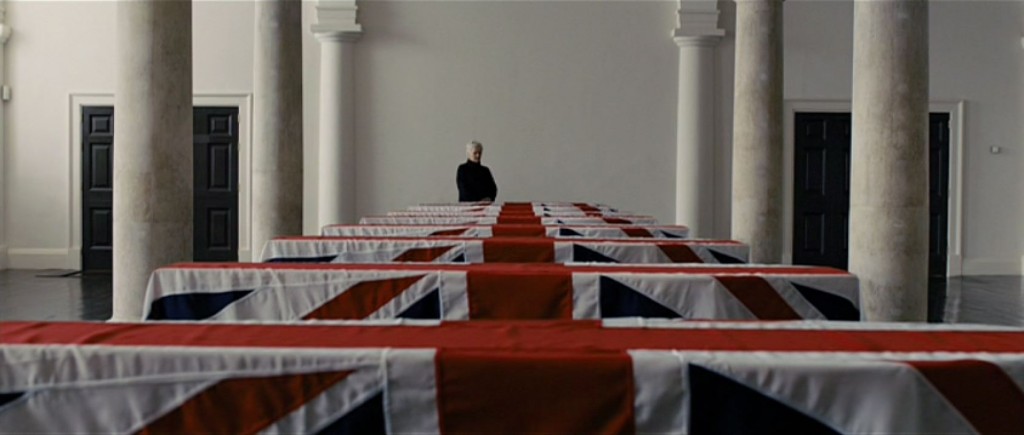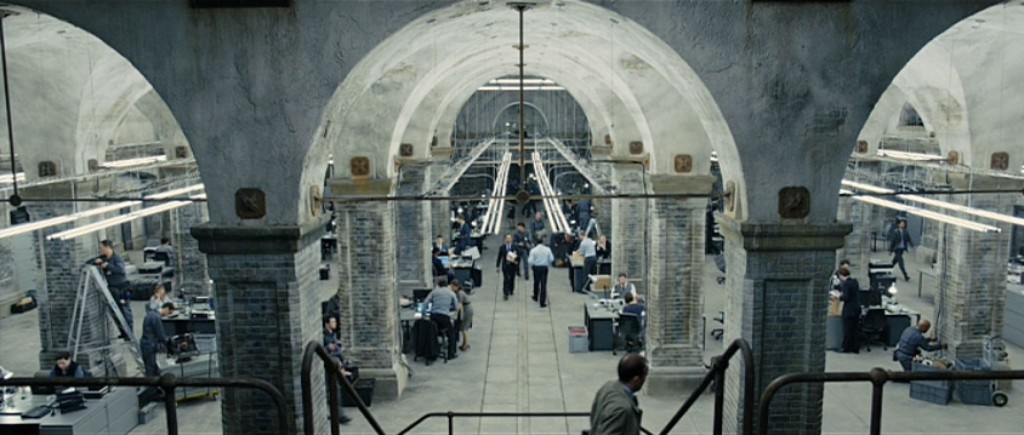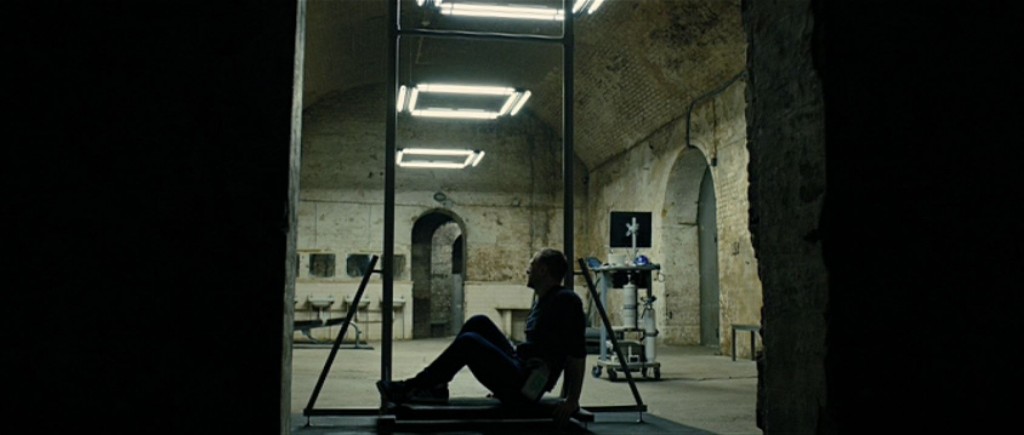James Bond: Skyfall part 3
What does James Bond want? As I’ve discussed before, James Bond’s “natural state” is one of arrested adolescence. He wants only to bed beautiful women, drink himself to stupefaction, and, if time allows, gamble. Everything that happens in his movies, all the cat-stroking psychopaths and space-based lasers, are all things that prevent him from getting back to doing what he wants. At the end of the typical Bond movie, he ends up in a boat or a space capsule or a submarine with a beautiful woman and a bottle of champagne, his debt to the world discharged. Allow me to repeat: if it were not his job to save the world, James Bond would never ever do it. It is not his concern. Which is why he often seems so bored on his adventures. In his very first movie he even sighs and says “The same old dream, world domination,” as though there is nothing more routine than single-handedly altering global history.
In Skyfall he is no different. Surviving being shot (twice) and plunging off a very tall bridge into a river, and then going over a waterfall, Bond has apparently washed ashore somewhere beachy and is making a living from betting on scorpion-themed drinking games. He’s got a shack, a lady friend, access to booze (and prescription drugs, apparently for his still-healing wounds) and gambling (scorpion drinking isn’t not Chemin de Fer, but what is?), he has, after a turbulent pre-title sequence involving his own death, established equilibrium. For all this, he’s not happy — something, he can tell, is calling him.
Into this paradise, life intrudes, as he is informed of the attack on M’s life. Bond will never marry (Lazenby excepted), and he will never be a father, but he is, for what it’s worth, a good son, and he hies himself, like Bruce Wayne out of The Pit, back to rainy old London to report for duty.
Bond’s surrogate mother — hell, at this point his only mother, M, has to deal with the deaths of MI6 staff. Bond wouldn’t consider office workers brothers, exactly, more like snooty cousins, but they are still family to him, and, more importantly, the attack on MI6 indicates that whoever got the list of agents also has got access to M’s computer system, which has put M herself at risk. Why does this matter to Bond? He is, for all intents and purposes, dead. What the narrative of Skyfall suggests is that Bond — or anyone — given a situation where all familial responsibilites have been removed, will still seek out family. If one does not exist, Bond will create one. M has always been a parental figure to Bond, but Skyfall is the first movie to suggest that Bond needs that.
Bond turns up in M’s house, haggard and drunk, the prodigal son. M, oddly, is not ready to kill the fatted calf for him. She demands that he “pass the tests” in order to be considered for field duty, that is, in order to be considered a good son. Why this is her concern at all is a better question — do all double-O agents report directly to the director of the agency? (Reader Iain informs me: yes, yes they do.) Again, the question arises “What is Bond to M?” Does she consider him a special case, a special project? Ian Fleming described Bond as a “blunt instrument” designed to administer Her Majesty’s dirty work. (Reader Iain, ever helpful, informs me: no, he didn’t, it was John Gardner.) Judi Dench hasn’t played Elizabeth II, but she has played both Elizabeth I and Victoria, her monarchical credentials are superlative. Is Bond “hers?”
“Why did you come back?” asks M, and Bond answers “Good question.” They argue, about, essentially, her choices as mother — she gave up Ronson to retrieve the list, then gave up Bond to retrieve the list, and then failed to retrieve the list. The list isn’t even of MI6 agents, it’s of NATO agents, which means that M sees herself as mother to agents for all of western civilization — quite a maternal burden. Bond’s beef with M, for the moment, is that she’s ruined things for both of them — there’s both anger and heartbreak in his tone, seeing what his “mum” has done not just to him but to herself. This is the closest Bond has ever come to being a full-fledged adult, being able to look at M as not just a parent but as a person. It’s the same crisis every adolescent faces, when they realize their parents are human.
Bond goes with Tanner, M’s right hand, to MI6’s “new digs,” a network of tunnels dating back centuries. Tanner name-checks Churchill, and mentions that MI6 is now “on war footing” because of the seriousness of the computer breach — again, establishing the disconnect between the war Churchill fought, and the one M must now fight. It’s “quite fascinating, if it wasn’t for the rats,” Tanner adds, implying both that Churchill’s methods of warfare are so out of use as to be useless, and that MI6 has traitors in its midst, and linking MI6 to the yet-to-be-mentioned Rat Island that bad-guy Silva will describe in Act II.
While Bond trains to get back into action, Turner performs an info dump, filling Bond in on Bad Guy’s computer shenanigans. A good use of an info dump, combining it with a training montage, two cliches piled atop one another, both played for comic effect. The fact that Turner’s soliloquy goes on over several scenes of Bond’s training suggests that a) Turner has nothing better to do than to talk to Bond for hours on end, and b) that there’s a lot of info dump they’re actually sparing us. Again, the question arises: does Turner personally bring all agents up to speed when they come in from the cold, or is Bond a special case? Shouldn’t Turner really have other things to do than walk James Bond through the details of the latest MI6 crisis? Either Bond is special (M fretting over his obituary) or he’s not (M forcing him to re-take agency tests, then tossing him out of her house in the rain). Why does MI6 constantly jerk him around? One moment he’s The One, the next he’s just “another one.” Ethan Hunt only gets a self-destructing tape, why does Bond get the personal attention of the brass?
The training montage, of course, also further humanizes Bond for us. For a man who’s effortlessly achieved everything from scuba-fights to spacewalking, it’s torture to watch Bond, drawn and pale, needing to prove himself while a jacket-and-tie dweeb prattles at him. It’s not just global espionage that’s changed in the past 50 years. Today’s fantasy figure, it seems, can’t just save the world, he’s got to sweat, and hurt, in the process. I feel like we’ve internalized Bond somewhat since Connery, made our hurts his. Before 9/11, Bond could casually kill people and drive tanks around because, as far as we knew or cared, that’s how things are done. Now we know better, the world of real-life espionage has intruded on our consciousness. Quantum of Solace acknowledged the Bourne franchise breathing down Bond’s neck, Skyfall acknowledges that real life also rests on Bond’s shoulders.




It’s still “ma’am”, not “mum”. 😛
And I don’t think Fleming ever called Bond the ‘blunt instrument’. I think it was John Gardner in “License Renewed”.
A lot of this goes back to the idea that the “00” section is the cream of the crop, and I think there are ever only 9 in the section. They’re supposed to be all at the emergency meeting in “Thunderball”. So of course the “00”s report directly to M. With the license to kill, their assignments aren’t handed out lightly.
I did not know any of this. Awesome.
I wonder, if there are only 9 “00” agents, why they need the “00.” “00” implies that they go up to 999. At which point, I guess if they needed another agent, he’d be 1000.
00 is a prefix, as established in one of the Ian Fleming novels (You Only Live Twice, I think, but don’t hold me to that). Embassy ranks get a 000 prefix, and so on (the “so on” was never fleshed out).
Man, Sam Mendes loves him some “pillars receding into the distance” shots.
It makes sense for M to be given the Classical pillars of a Roman elegy if she’s the matriarch of the entire Western (NATO) world.
Also, I missed the fact that Winston Churchill’s tunnels have rats/Rat Island, but it seems to fit with the theme of mismatch between the old and the new–after all, if you have a problem with rats, you need a ratter of some sort, like a terrier, not a British Bulldog (Churchill/M’s dog statue).
But since I’m interested in screenwriting, I wonder how much of this was on the page and how much was added by Mendes/producers.
Oh, me too.
Not to nitpick, but it’s actually Tanner — Bill Tanner — not Turner. He’s also a character who appeared in several of the older films, played by a few different actors.
My apologies to Tanner. And to the great profession of tannery.
It occurs to me that Bond isn’t the only cardboard cutout who becomes an actual character in these films; it’s also M. It starts all the way back in Casino Royale, when you see her husband (we presume it’s her husband…) in bed next to her when she gets woken up by Bond’s computer hacking antics, and by the time we make it to Skyfall, M’s personal history and what she wants/needs/feels has become a driving force in the narrative — along with her relationship to Bond. The two of them become three-dimensional together, and in part because of each other.
I think the character started changing as soon as Dench took over the part, Bernard Lee was never anything more than a befuddled square. In one of the Brosnan’s, I can’t remember which, M becomes central to the narrative, so that by the time Casino Royale comes along, we’re ready to go deeper into her. So to speak.
Hmmm — I’ll take your word for it re: the Brosnan Bonds. I don’t remember M being central to any of them, but I’ve got very spotty memories of their plots.
I looked it up, in The World is Not Enough M gets kidnapped and she has a couple of tender moments with Bond.
Bernard Lee was never just a befuddled square – you may be confusing him with that presenceless nobody of a replacement in the 80s!
Watch THUNDERBALL again. Lee does so much with so little (and M should never really have that much in the way of screentime). That great moment when some bureaucrat trashes Bond behind his back, and M without hesitation leaps to his defence with this look in his eyes that says he’s killed people for less – that’s great movies. And all in a very polite, old-world British way!
But then I’d have to watch Thunderball again.
It’s the best one!
To me – and I’m being 90% serious here – it just doesn’t FEEL like a Bond movie unless you slip into a coma on the couch and then wake up an hour later and realise in horror that HOLY SHIT THIS MOVIE IS STILL GOING.